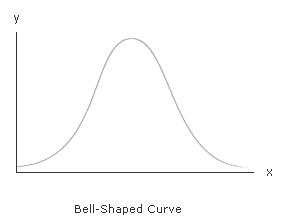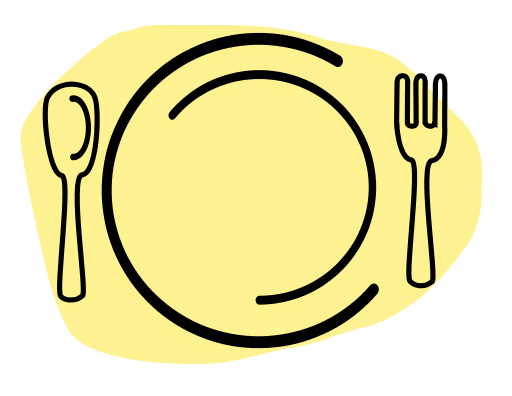 The lady seated to my left is quietly sleeping, now that the turbulence has ended and the plane is smoothly making its way across Texas. Her neatly groomed white hair frames a lightly tanned face, with lips that support a broad smile, and wrinkles that testify to memories of a life fully lived. She boasts those fine lines at the corners of her mouth that come from smiling more often than frowning. I had the pleasure of speaking to her while she was being helped onto a wheelchair while boarding. She didn’t understand English and it didn’t matter, because she said thanks with a sincere smile and nod when I offered help. I did not need a linguist to interpret her meaning.
The lady seated to my left is quietly sleeping, now that the turbulence has ended and the plane is smoothly making its way across Texas. Her neatly groomed white hair frames a lightly tanned face, with lips that support a broad smile, and wrinkles that testify to memories of a life fully lived. She boasts those fine lines at the corners of her mouth that come from smiling more often than frowning. I had the pleasure of speaking to her while she was being helped onto a wheelchair while boarding. She didn’t understand English and it didn’t matter, because she said thanks with a sincere smile and nod when I offered help. I did not need a linguist to interpret her meaning.
Monthly Archives: January 2012
The Vast Middle Ground
 The bell shaped curve, that great equalizer of the school classroom, is meant to explain how a population of test scores will eventually unfold itself neatly along a predetermine path, thus displaying the test results into upper, lower, and average positions. In my eighth grade English class, I prayed that everyone else was as confused and ill-prepared as I, so the entire curve would be adjusted downward, giving me a fighting chance for a graded-on-the-curve C. But the concept of a predictable outcome of highs, mediums and lows, is not just used in school; cars are labeled as luxury, mid class, and economy, you can fly in first class, coach, or in lower fare seats. The bell shaped curve is also used to described our life (yours and mine), in terms of its quality when compared to everyone else. Are we middle class, upper class, or poor? Those labels are thrown at us by politicians, reporters, educators; the need for others to categorize our life into a single box is nearly fanatical in its scope.
The bell shaped curve, that great equalizer of the school classroom, is meant to explain how a population of test scores will eventually unfold itself neatly along a predetermine path, thus displaying the test results into upper, lower, and average positions. In my eighth grade English class, I prayed that everyone else was as confused and ill-prepared as I, so the entire curve would be adjusted downward, giving me a fighting chance for a graded-on-the-curve C. But the concept of a predictable outcome of highs, mediums and lows, is not just used in school; cars are labeled as luxury, mid class, and economy, you can fly in first class, coach, or in lower fare seats. The bell shaped curve is also used to described our life (yours and mine), in terms of its quality when compared to everyone else. Are we middle class, upper class, or poor? Those labels are thrown at us by politicians, reporters, educators; the need for others to categorize our life into a single box is nearly fanatical in its scope.
Perhaps worse is when we place our ability to be happy (content, or joyful) on a human bell shaped curve, relegating the amount of time we can spend being at the apex of life to 10-15 %, and when we are ‘just average’ to 70% of life’s timeline. I don’t believe people knowingly choose a mid-level happiness state for the bulk of their life, I think it just happens. I think we self-impose an expectation that being in a constant state of over-the-top exuberant happiness is wrong – only weird or naive people think like that. We tend to accept that good is good enough, and great is rare.
Ask someone the question, “How are you?” The overwhelming response is, “Good.” You will get a few greats, and a few that are ousy, but good will dominate. I submit that being great is a much more natural state that being good, and that we can, and should, redefine the curve to include more great, and less good and lousy. I believe that the plan was always for greatness, and we have deviated from where we can be.
Here are a few ways to move the bar towards great:
- Redefine the driving force that creates your personal happiness (or joy) away from external sources to internal ones. Try not to rely on a person, place or event to make you happy. Choose to be happy all on your own.
- Use your own definition for happiness, not that of someone else. It’s your life, you get to define it.
- If happiness and joy are elusive, try doing something great for someone else, and something great for yourself too. Feeling great spreads from person to person like butter on warm bread.
I’m not proposing an arrogant version of great or a prideful view of happy. Just the opposite, I am promoting a humble and sincere version of being at the top, where there is room for everyone.
I find joy in my faith, where I am told that I am special, I am one of a kind and I am loved beyond my capacity to comprehend. There is nothing wrong with feeling good, but there is something very right about being great.
Thanks for reading.
Fast Fast
 The title of this piece is either a double entry (which should be caught by spell check), or the writer is finally showing signs of his age. Or perhaps the meaning is exactly as it is written. Fast fast could mean to hurry hurry, now now, or to run very fast; and I mean very fast. Or, since fasting in the Biblical sense means to abstain from eating (mostly), the title could mean to not eat at all, nothing, nada: no food whatsoever. Combining the two definitions would mean to hurry up and not eat. Personally, I love to eat; so I wonder why I might desire to quickly move towards something that I don’t want to do. In reality, I would drag myself in the slowest possible fashion towards a goal of eating less, let alone not eating at all. So maybe there is another choice.
The title of this piece is either a double entry (which should be caught by spell check), or the writer is finally showing signs of his age. Or perhaps the meaning is exactly as it is written. Fast fast could mean to hurry hurry, now now, or to run very fast; and I mean very fast. Or, since fasting in the Biblical sense means to abstain from eating (mostly), the title could mean to not eat at all, nothing, nada: no food whatsoever. Combining the two definitions would mean to hurry up and not eat. Personally, I love to eat; so I wonder why I might desire to quickly move towards something that I don’t want to do. In reality, I would drag myself in the slowest possible fashion towards a goal of eating less, let alone not eating at all. So maybe there is another choice.
To Teach or Preach?
 There is a thin line, (sometimes it’s a fishing line so it appears invisible), which separates preaching from teaching; especially if the topic is your children’s behavior, or religion. Discussions about God and spirituality may start with the noble intention to teach, but through various hairpin curves and hidden trap doors, evolve mysteriously into full blown, sweat filled, amen-alleluia, God-is-a-coming-soon, sermons. They become the type of interaction where everybody is wet with perspiration – no matter the temperature inside or out. With all nobility swept aside, a dialogue into your kid’s behavior barely stays a nanosecond in the teaching mode before leaping at warp speed into preaching. Of course, that is how it should be: they need it.
There is a thin line, (sometimes it’s a fishing line so it appears invisible), which separates preaching from teaching; especially if the topic is your children’s behavior, or religion. Discussions about God and spirituality may start with the noble intention to teach, but through various hairpin curves and hidden trap doors, evolve mysteriously into full blown, sweat filled, amen-alleluia, God-is-a-coming-soon, sermons. They become the type of interaction where everybody is wet with perspiration – no matter the temperature inside or out. With all nobility swept aside, a dialogue into your kid’s behavior barely stays a nanosecond in the teaching mode before leaping at warp speed into preaching. Of course, that is how it should be: they need it.
Each communication method has its own benefits and hindrances; the use of either is not a matter of right vs. wrong, but more a selection of appropriate timing. Teaching, or coaching as it is called in sports, is a service that is nearly unencumbered as to “when” it is applied; it is always acceptable to teach. Circumstances and companions will dictate the depth and length of the lesson; which, subject to your role as teacher or student, can range from a moment to seemingly, an eternity. Yet with all viewpoints included, teaching is mostly about giving. One person gives their knowledge, experience, or opinion to another – it is meant to be an unselfish act of sharing. The acceptance of all, or part of the lesson, is completely the responsibility and choice, of the recipient. I think that is where to “leading a horse to water…” saying came from.
More and Better
 As the year ends and we transition to another, it is commonplace to reflect on what we have done, and what we have left undone. Too often though, reflection on the past morphs into a self-inflicted mental beating, centered on our perceived shortcomings. We tend to focus on the bad, and forget about the good we have done. The discussion becomes a stream of, “I didn’t…”
As the year ends and we transition to another, it is commonplace to reflect on what we have done, and what we have left undone. Too often though, reflection on the past morphs into a self-inflicted mental beating, centered on our perceived shortcomings. We tend to focus on the bad, and forget about the good we have done. The discussion becomes a stream of, “I didn’t…”
I didn’t lose ten pounds.
I didn’t get that promotion.
I didn’t find full time work.
I didn’t save, or invest as I had planned.
I didn’t, I didn’t, I didn’t……
A little negativity can erase a lot of greatness, if we let it. Our pastor spoke about this phenomenon in an excellent sermon, and I’m sharing just two if his thoughts, but they are very important. When the “I didn’t” takes over, remember:
You are better than you think you are
You matter more than you think you do
Why? Because it is true, and because God said so. We are not the center of the universe, God is. But, sometimes we are much closer to the center than we think.
Happy New Year!
Thanks for reading.
STARTING NEXT WEEK, RATHER THAN SENDING THE ENTIRE MESSAGE IN AN EMAIL, I WILL BE SENDING A LINK BACK TO MY WEBSITE WHERE YOU CAN READ IT. I PROMISE IT WILL BE EASY AND FAST. – Michael
